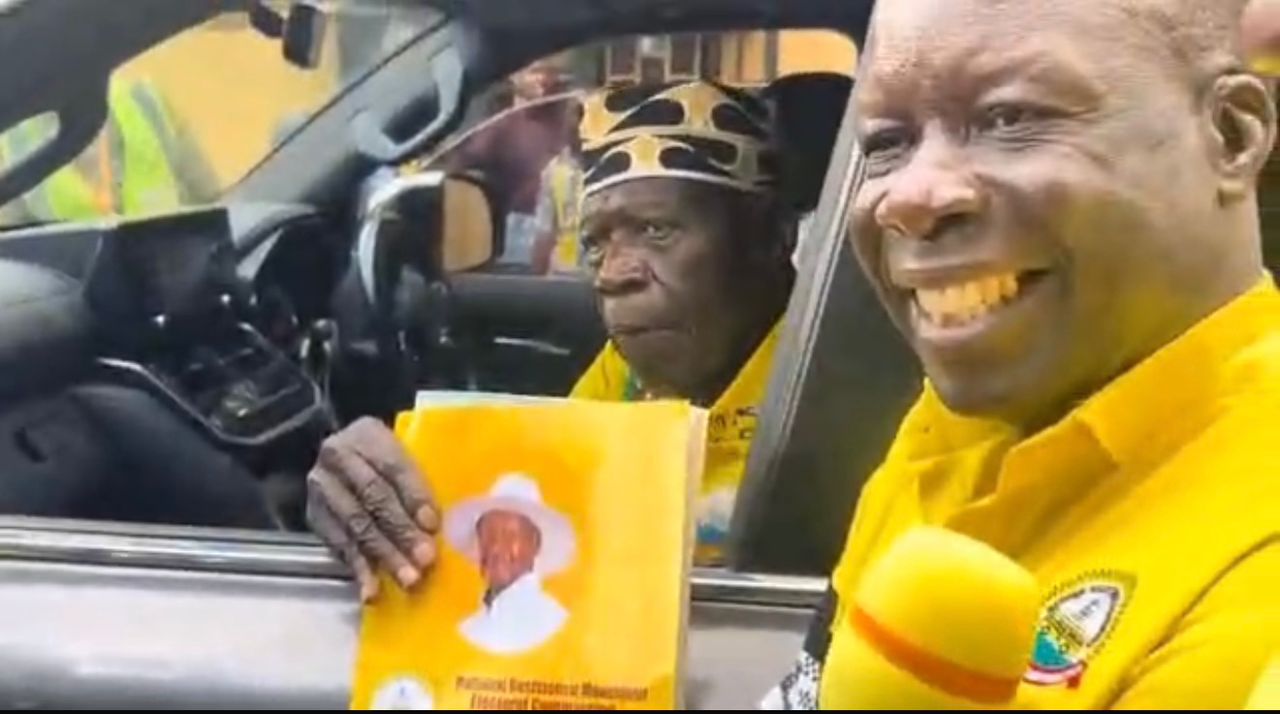As the ruling National Resistance Movement (NRM) kicked off its nomination process in Kampala, the spotlight fell on the return of long-serving political heavyweights some in their 70s and 80s who continue to wield influence in Uganda’s shifting political landscape.
At the party’s Electoral Commission headquarters in Kyadondo, strict security protocols and heavy restrictions underscored the high stakes of the internal elections, scheduled for July 16, 2025.
Among the first to be nominated was 86-year-old Second Deputy Prime Minister Gen. Moses Ali, who is seeking another term as Adjumani West MP, a seat he has held since 2011.
Gen. Kahinda Otafiire, currently serving as Minister for Internal Affairs also returned for another shot at representing Ruhinda County.
In a reflective tone, Otafiire admitted that the 2026 general elections might be his last, noting he would be 80 by then.
Their continued presence not only highlights the longevity of certain political careers within the NRM but also the party’s enduring reliance on its historical figures.
But this year’s nomination process was not just about names on the ballot.
It was marked by extraordinary levels of security and limited access, giving the entire exercise an air of exclusivity.
With hundreds of enthusiastic supporters turning up to back their candidates, security forces responded by sealing off roads leading to the venue.
Barricades were set up from Wandegeya to Mulago Roundabout, and only senior government officials, Central Executive Committee members, and people with disabilities were allowed vehicle access.
Everyone else had to walk, pass through three checkpoints, and present national IDs to gain entry.
Candidates were officially allowed only three seconders, but many showed up with dozens of supporters, most of who were left outside the gates.
Undeterred, they stayed to chant, dance, and blow vuvuzelas in a show of grassroots energy that contrasted with the tightly controlled environment inside.
The media, too, was closely managed. Unlike previous years where nominations were a major press event, only a handful of pre-approved journalists were allowed into the grounds.
This controlled approach reflected the party’s increasing emphasis on message discipline and image management, even during internal processes.
Inside the nomination tents, the process was handled in stages first by verifying documents, then by the legal team led by lawyer Enoch Barata, before final approval by Electoral Commission Chairperson Dr. Tanga Odoi.
The system may have been orderly, but it also highlighted the top-down nature of political operations within the party.
Despite the heavy regulation, several candidates sailed through with ease.
Speaker of Parliament Anita Among and Minister of Health Dr. Jane Ruth Aceng were both returned unopposed for Bukedea and Lira District Woman MP seats, respectively.
Former Minister for the Presidency Esther Mbayo was also cleared to run in Luuka, while State Minister Phiona Nyamutoro secured her place for Nebbi District.
In Sironko, Mafabi Asha Nabulo, another unopposed candidate, celebrated what she called a major step toward giving voice to the marginalized.
As the NRM prepares for its internal polls, the contrast between enduring political figures and a tightly controlled nomination process reveals much about the party’s structure where loyalty, longevity, and internal order remain central to its electoral machinery.
By Ben Musanje
18th June 2025
End

